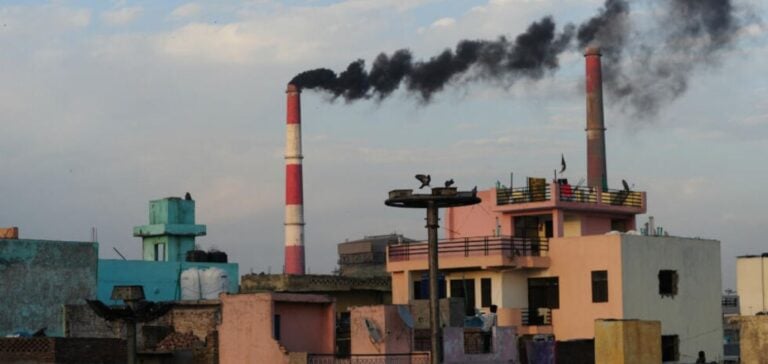India is significantly increasing its coal- and gas-fired power generation to meet the record demand caused by the heatwave in May and June.
Although renewable energies are developing rapidly, they do not yet have the capacity to meet the increased energy needs arising from the intensive use of air conditioning and refrigeration.
According to data from the Central Electricity Authority, coal-fired power generation will reach a record 233 billion kilowatt-hours (kWh) during this period, compared with 209 billion kWh in 2023 and 202 billion kWh in 2022.
Gas production also increases, reaching 10 billion kWh, the highest level since 2020.
This increase is partly due to lower imported gas prices and government directives to maximize production.
Improving Network Reliability
Thanks to this additional production, the transmission network remains stable despite the high demand for air conditioning.
Transmission frequency fell below the minimum acceptable threshold of 49.9 cycles per second (Hertz) only 4.5% of the time in June and 2.3% in May.
These figures are a significant improvement on 2022, when underfrequency periods accounted for 6.5% in June and 9.8% in May.
Grid stability is a key indicator of the resilience of the power system, showing that, despite the high temperatures, the balance between generation and demand is better maintained this year.
Planning and Operations
Indian fossil generators are benefiting from rigorous planning, entering the period of high demand with abundant stocks.
In April, coal stocks are close to a record, at 50 million tonnes, compared with 36 million tonnes at the same time in 2023.
During the heatwave, coal mines shipped a record 145 million tonnes to generators in May and June, ensuring uninterrupted supply, coupled with soaring imports.
On top of this, abundant gas stocks in Europe and falling international LNG prices are enabling generators to buy enough fuel to run longer than in the past two years.
Dependence on fossil fuels
Over the past six years, India has been deploying considerable renewable generation capacity, particularly solar photovoltaics.
Renewable capacity has been growing at a compound annual rate of 13% since the end of 2018, while solar capacity is increasing by almost 24% per year.
However, during heatwaves, it’s the ability of fossil fuel generators to run intensively, with affordable fuel stocks, that keeps air conditioning running.
Although the share of fossil-fuel generators in total capacity has fallen from 64% to 54% in five years, their role remains crucial during periods of high demand.
The heatwave of May and June highlights India’s continuing dependence on fossil fuels to ensure the stability of its power grid.
While renewable energies continue to grow, the ability to rapidly mobilize fossil resources remains essential to meet peak demand.
Looking ahead, India will need to balance the expansion of its renewable capacity with robust strategies to maintain grid reliability, particularly in times of extreme weather conditions.






















